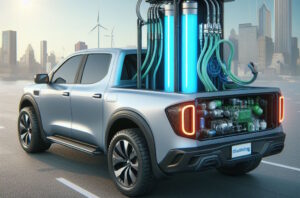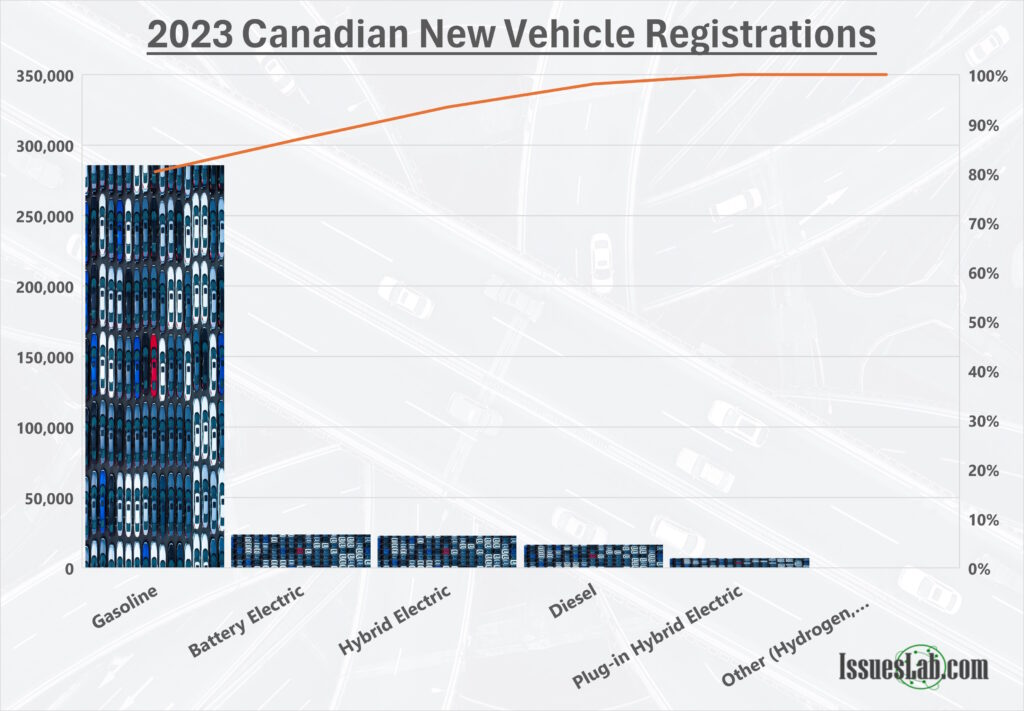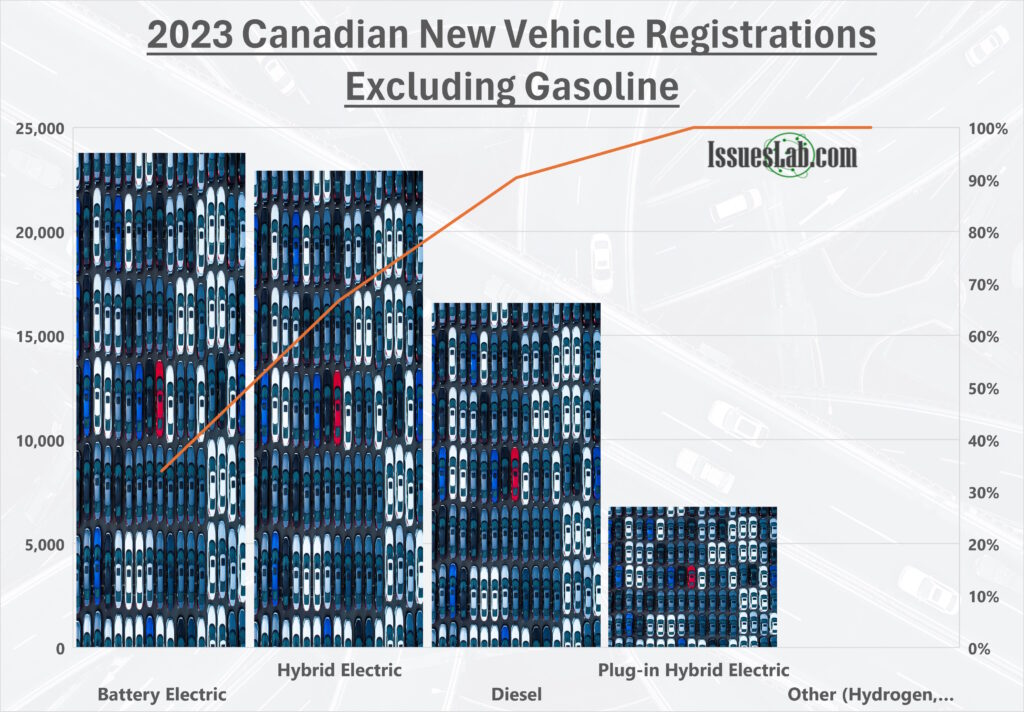Before we dig into this hydrogen hype, we want to remind you that we are still big believers in hydrogen powered vehicles, but we are not blind to the state of the technology today and how that is reflected in real market conditions.
We just finished listening to an interview with the Canadian Minister of Energy and Natural Resources, Jonathan Wilkinson, and heard him yet again say that hydrogen and battery electric vehicles sales are increasing in Canada.

While we think it’s safe to say that no-one who is remotely informed about the facts would argue that EV’s (battery electric vehicles {BEV}, plug-in hybrid electric vehicles {PHEV}) are selling well in Canada, the repeated inclusion of hydrogen vehicles in these bullish statements, struck us as perplexing.
In 2024, hydrogen vehicles are still what the industry calls “compliance vehicles” meaning that they are only for sale in markets where they are required by law to be for sale, like California. Hydrogen vehicles are sold in incredibly small quantities and are nearly all hand built rather than factory mass produced.
Canada has massive potential for hydrogen production and we would love to see it succeed but dealing with reality is also important.
It’s not that hydrogen doesn’t work, and it’s not that hydrogen won’t be much more practical in the not-so-distant future, but the cost has to come down, a few new technology breakthroughs need to occur, and reasonably priced hydrogen filling stations need to exist, if hydrogen powered vehicles are ever to become more than science projects.
We decided to find out what the actual sales numbers were for 2023 and really were shocked to find how few fit the vehicle registrations fit the Statistics Canada definition of “other”, which include hydrogen, natural gas, and propane powered.
As you can see in the graphic below hydrogen powered vehicles literally do not show on the chart.

To make hydrogen powered vehicles more visible we decided to remove the entire gasoline category from the chart which magnifies the scale more than 10 times. However, as you can see hydrogen vehicles still don’t show up on the graph:

We maintain our prediction from a couple of years ago that hydrogen will replace diesel vehicles in the coming years. The key word in that sentence is “years”. Because hydrogen can be refueled so quickly, are not as effected by heavy loads, we believe hydrogen powered vehicles will be practical for many commercial fleets, perhaps before the year 2030.
| Fuel type | Q1 2023 | Q2 2023 | Q3 2023 | Q4 2023 |
| Gasoline | 285,757 | 367,971 | 344,217 | 322,194 |
| Diesel | 16,562 | 19,751 | 18,099 | 19,526 |
| Battery Electric | 23,774 | 34,610 | 42,589 | 38,528 |
| Hybrid Electric | 22,916 | 38,987 | 38,748 | 35,008 |
| Plug-in Hybrid Electric | 6,759 | 12,047 | 13,643 | 12,628 |
| Other (Hydrogen, Propane, Natural Gas) | 6 | 5 | 3 | 2 |
| Totals | 355,774 | 473,371 | 457,299 | 427,886 |
It is important for government officials to promote startup industries, like hydrogen vehicles, but when the sales of a product are so low as to not be measurable, it makes us wonder if his hyperbole means we have to fact check everything the minister says.
The Canadian Energy Minister is certainly not technically wrong, but he is being very misleading.



0 Comments